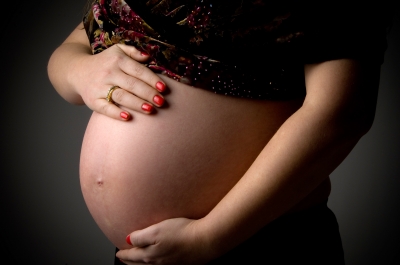Do I Have More Than Just the “Baby Blues”?
Many people mistake Postpartum Depression with having a case of the “baby blues” and they will tend to shrug off the need for medical intervention. It is pretty easy to confuse the two since the symptoms are very similar. However, postpartum depression symptoms extend longer than two weeks and it won’t go away on its own. If you feel that you have postpartum depression, contact your obstetrician, primary care doctor, health care professional, or a mental health center for an evaluation. They can help determine if you are suffering from postpartum depression. If you feel like you are going to hurt yourself or your baby, please go to the emergency room or seek treatment from your doctor immediately.
What are the Symptoms of Postpartum Depression?
Postpartum depression symptoms can begin at any time during the first year of your babies life; however, it is likely that the symptoms will show up during the first two months after your baby is born. If you have any of the following symptoms that last longer than two weeks, contact your doctor or health care professional as soon as possible.
- Irritable
- Overly Sensitive
- Constant Crying or Teary Eyed
- Difficulty Concentrating
- Feeling Anxious
- Constantly Worrying
- Angry
- Loss of Interest in Activities that you Usually Enjoy
- Changes in Eating Habits (Not Eating or Overeating)
- Headache
- Stomachache
- Nausea
- Backache
- Fatigue or Exhaustion
- Difficulty Sleeping
Mom, if you are diagnosed with postpartum depression, please don’t beat yourself up. You did nothing wrong and can’t help the way you feel. Don’t be discourage for seeking medical intervention. Depression is common after you experience a life changing event such as having a baby. If your doctor feels that you need medication, please give it a try so that you can feel more like yourself sooner than later. Untreated depression can cause other problems such as long term depression, thoughts of harming yourself or others, or possible suicide.
Offer Love, Support, and Encouragement to a Mom Who is Suffering from “Baby Blues” or Postpartum Depression
Family and friends should be there to support you and not to make you feel worse about having postpartum depression. It is best to be there for a new mom so that you can offer her love, encouragement, and support. It is also important that you refrain from saying the following:
- Just get over it.
- It’s all in your head.
- A pill won’t fix your underlying problem.
- Never discount their feelings.
- Any other negative comments.
Did you suffer from postpartum depression or baby blues?

Comments
5 responses to “Can You Tell the Difference Between Baby Blues and Postpartum Depression?”
Thanks for this very informative post! First-time and expecting moms gotta read this! 🙂
It is excellent info. Just thinking you might have depression would stress you out too. It’s such a tough job that Moms do!:)
Change is so overwhelming: marriage, new job, new house, new baby or even sending that baby off to college. This is a wonderfully sensitive post. I hope all your readers, whether new moms or experienced, will remember to treat others with just a bit more kindness and a lot less judgment.
This was a great post. So many people don’t want to talk about depression, or are ashamed of it. Thanks for your sensitive post.
It is important to know the difference although being down or depressed isn’t anything to ignore totally. Very informative!